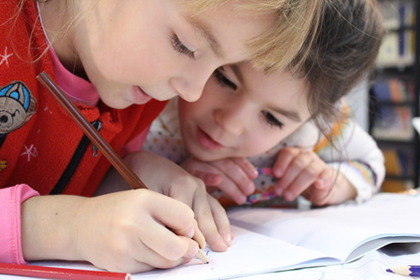Safety Centre
Welcome to TutorExtra's Safety Centre
We understand that, while most one-to-one provider experiences are safe and conducted professionally, it’s crucial to take reasonable precautions to ensure the safety of all parties involved. We strongly recommend reading the following information before using our services for delivering or receiving one-to-one tuition.
For Students and Parents
When hiring a private tutor or service provider, it’s likely that you’ll either bring a stranger into your home or go to their home. While it’s highly probable that the experience will be safe if you've found the tutor on TutorExtra, we cannot provide absolute guarantees. It’s therefore essential to take sensible precautions, especially if your child is involved. Here are some basic precautions to consider:
DBS Checks
Although not mandatory, we recommend that tutors on our platform have a Disclosure and Barring Service (DBS) check, especially if they intend to tutor children. This ensures that there’s no known reason why they should pose a risk to students. You can find out whether a tutor has a DBS check by browsing through their profile on the site, but we encourage students and parents to ask to see an up-to-date DBS. A professional tutor with nothing to hide will be happy to provide this.
Qualifications and Experience
Since we can’t verify the information tutors provide about their qualifications and experience, we advise students and parents to ask to see certificates and testimonials before hiring a particular tutor. You should also ensure that the tutor has all relevant insurance in place.
The First Meeting
The first meeting is crucial in determining whether a tutor or service provider is the right person for the job. The tutor-student relationship is as important as professional credentials, so be honest with yourself about how you interact, if you're a student, or observe the tutor's interactions with your child.
If the meeting is not at your home, here are some important safety measures:
- Meet in a public place, such as a coffee shop, if possible.
- Have someone with you, if possible.
- If the tutor is for your child, even a teenager, accompany them to the meeting.
- Always tell someone where you're going.
Ask for a Written Contract
While services can be delivered on the basis of a verbal agreement, a written contract will ensure that both parties are legally bound to the agreement and prevent conflict if any of the terms are not fulfilled.
Making Complaints About a Tutor or Service Provider
If you experience behaviour that you think might be harmful to yourself or other users of the site, contact us and we may, at our discretion, suspend or delete the offending tutor’s profile.
For Tutors and Service Providers
As a tutor or service provider, there are a number of potential dangers you may face from a student you don't know, including personal danger, unfounded accusations or inadvertently breaking the law. Here are some basic precautions you can take:
Legal Obligations
You are a small business and therefore have a number of legal obligations, including:
- Having all relevant paperwork and accounts up to date and ready for inspection at any time.
- Being compliant with UK GDPR (General Data Protection Regulations).
- If lessons take place at your home or business premises, ensuring that you've eliminated risks such as trip hazards.
- Having the relevant insurance policies in place. These might include public liability, professional indemnity, personal accident and business equipment insurance.
Be Honest and Open
While it might seem tempting to inflate the experience or qualifications in your profile, it's likely that you’ll be found out and subject to a complaint. You should ensure that all certificates and other documentation (including DBS checks) are available, and be open to having them inspected on request.
 Offer a Written Contract
Offer a Written Contract
While you are not legally obliged to provide a written contract, we strongly recommend that you do so. This will offer legal protection to both sides, and will ensure that the student or parents can't claim that you've failed to deliver some aspect of the service that you didn't agree to.
The First Meeting
The first meeting is essential to ensure the relationship between you and the student is going to be productive. However, there's also the potential for both personal risk and false accusation. If the meeting isn't going to be at your home or business premises, these are some important safety measures:
- Meet in a public place such as a coffee shop, if possible.
- Have someone with you, if possible, especially if the meeting is with an adult student.
- If the student is under eighteen, ask for them to be accompanied by a responsible adult. This also applies to meetings at your home.
- Always tell someone where you're going.
Child Protection
When your student is a child, it's vital to take extra precautions, not only to ensure actual safety but also to protect yourself from suspicion or allegations. These include:
- Having an up-to-date DBS check.
- Undertaking specialist child protection training run by the NSPCC.
- Ensuring that you always have another adult present in the room during lessons.
- Avoiding any inappropriate social relations or physical contact.
- Always reporting any concerns or suspicions about abuse or neglect to the appropriate authorities.
Privacy and Confidentiality
As a tutor or service provider, you're likely to come into contact with confidential information about your students and their families. It's essential to respect this privacy and confidentiality and not share it with anyone else without their explicit consent. This includes:
- Not disclosing any personal information about your students or their families to anyone else.
- Ensuring that all notes or records are kept in a secure place.
- Not disclosing anything about the lessons or the student's progress to anyone else without their consent.
Avoid Misunderstandings
As with any professional relationship, misunderstandings can arise between tutors and students or their parents. To minimise the risk of such misunderstandings, it's important to be clear about expectations and to communicate regularly. This includes:
- Setting clear expectations about the nature and duration of the services or lessons.
- Agreeing on the fee and payment schedule in advance.
- Being clear about what you can and can't offer as a tutor or service provider.
- Regularly reviewing progress and discussing any issues or concerns with the student or their parents.
Staying Safe Online
Whether you're a tutor or a student, the chances are that the process of tutoring will involve an online presence, even if the teaching itself is in person. This makes it essential to follow all the general online safety tips. If you're the parent of an underage student, talk to them about online safety, explaining the reasons for the rules you set, and have a way of monitoring their online activities.
- Make your privacy settings as high as possible.
- Don't post any personal information online, except in appropriate secure forms on websites you have good reason to trust.
- Be very careful of posting photos or videos of yourself online — think about how they could be used in ways you don't want.
- Make your passwords difficult to guess and never share them with anyone.
- Before you post anything online, make sure it's what you really want to say. Inappropriate posts could damage your career later in life.
- Be extremely careful of befriending people you don't know and take all possible precautions before meeting them in person. Not everyone is who they seem.
- Beware of emails from anyone you don't know or that ask for personal information or to click on a link.
- Destroy the hard drive of any computer you're getting rid of, whether you're passing it on or throwing it away.
For more information about personal safety, check out the Suzy Lamplugh Trust website.
One-to-one tutoring can be a valuable and rewarding experience for both students and tutors. However, it's important to take reasonable precautions to ensure that everyone stays safe and protected. By following the advice above, you can help to ensure that your tutoring experience is a positive one.



